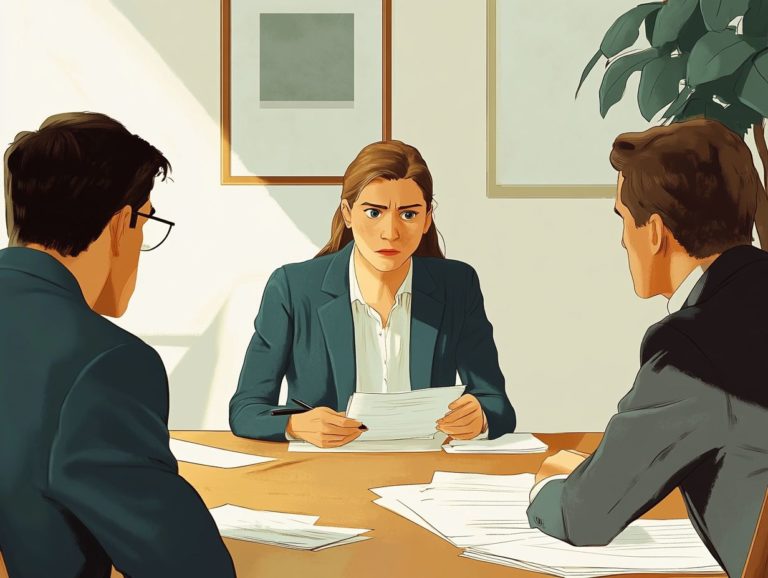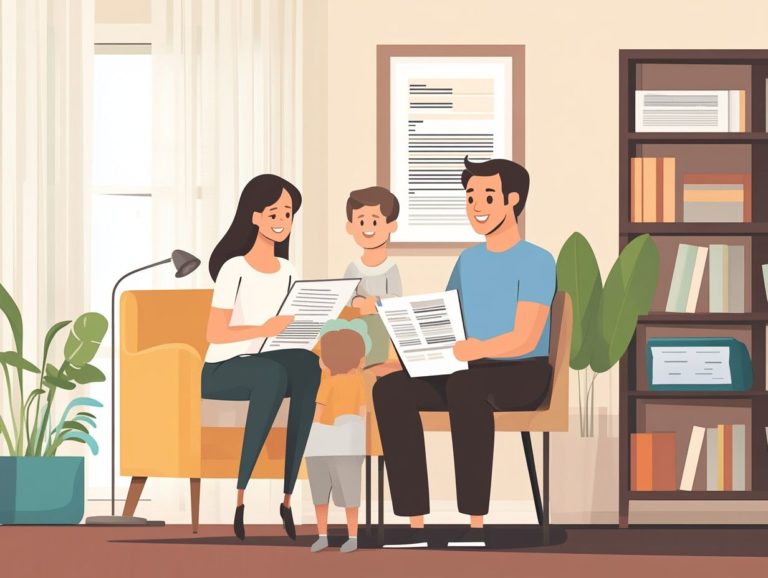Understanding Coverage for Uninsured Vehicles
Navigating the realm of uninsured vehicles can feel overwhelming. Understanding uninsured vehicles is crucial. If you’re involved in an accident with one, it could impact your financial future dramatically!
An uninsured vehicle isn t merely a legal issue; it brings considerable risks and liabilities that could affect your financial future.
This article delves into what constitutes an uninsured vehicle, the potential repercussions of driving one, and your insurance options to shield yourself from unexpected events. Whether you seek traditional coverage or alternative solutions, the insights provided here will empower you to remain safeguarded on the road.
Contents
- Key Takeaways:
- What is an Uninsured Vehicle?
- Why Uninsured Vehicles are a Risk
- Coverage Options for Uninsured Vehicles
- How to Obtain Coverage for an Uninsured Vehicle
- Exciting Alternatives to Traditional Insurance!
- Frequently Asked Questions
- What is uninsured motorist coverage?
- Do I need uninsured motorist coverage?
- Can uninsured motorist coverage also protect me in hit-and-run accidents?
- Is uninsured motorist coverage the same as underinsured motorist coverage?
- How much uninsured motorist coverage should I have?
- Can I use my uninsured motorist coverage for damages to my car if I am at fault?
Key Takeaways:
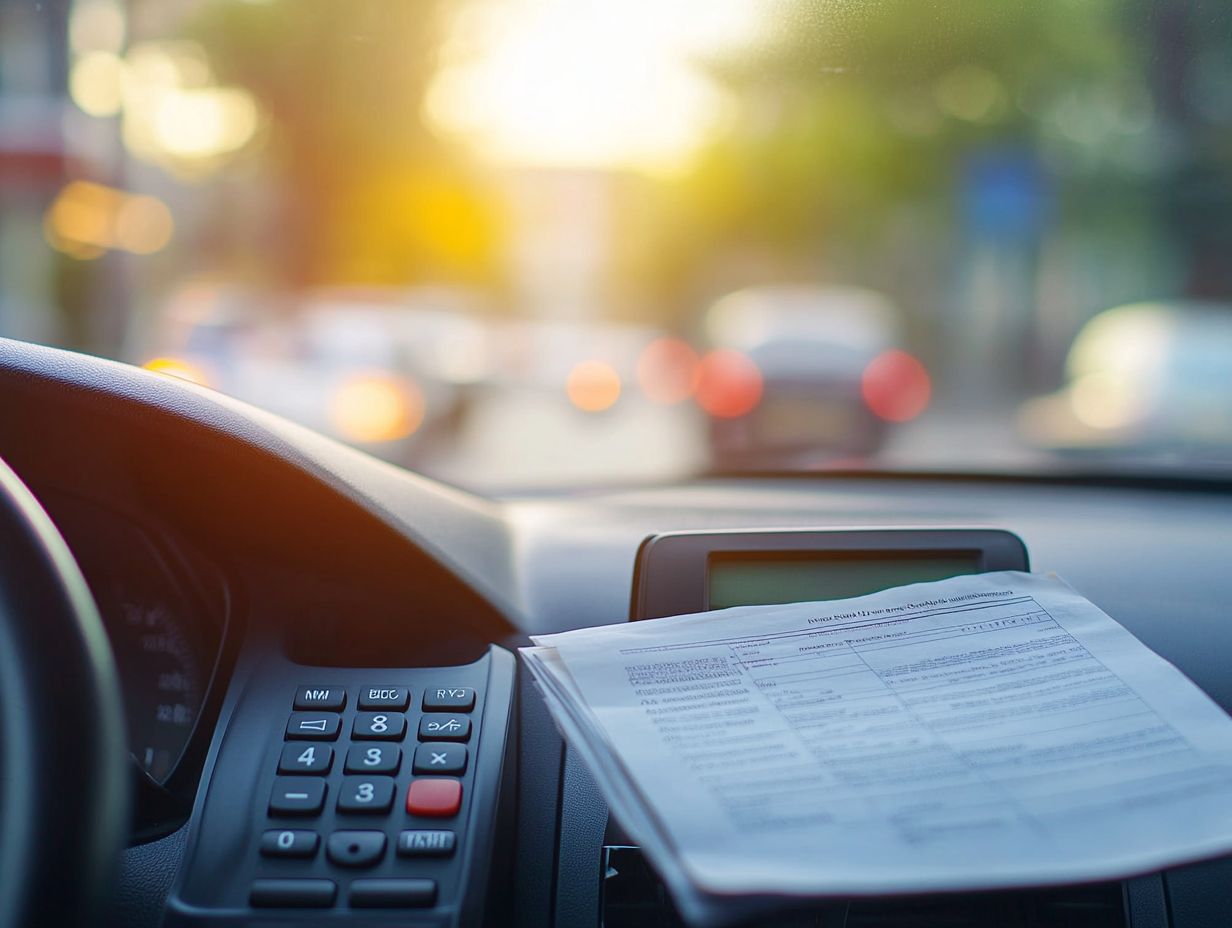
- Identify the significant risks that uninsured vehicles pose to both owners and other drivers on the road, as they lack proper insurance coverage to protect against accidents and liabilities.
- Learn about different types of insurance coverage and state requirements that can help individuals make informed decisions when insuring their uninsured vehicles.
- Explore alternative options such as self-insurance or obtaining a surety bond that can provide coverage for uninsured vehicles.
What is an Uninsured Vehicle?
An uninsured vehicle is one that doesn t have the mandatory insurance coverage required by law. This creates substantial risks for drivers in Florida.
When you encounter uninsured motorists, you may find that they lack the financial resources to cover the expenses arising from accidents, potentially leaving you with significant liabilities.
This situation can escalate into legal issues, especially in accidents causing injuries or damage. Therefore, it’s crucial to grasp how uninsured vehicles impact your rights and responsibilities under Florida Statute.
Definition and Types of Uninsured Vehicles
Uninsured vehicles encompass not only those that lack any insurance coverage but also those driven by drivers with low insurance coverage whose policies may not adequately address damages. Understanding coverage for unlicensed drivers is crucial in these situations.
Consider the situation of owners who have chosen to forgo insurance entirely, leaving themselves exposed in the unfortunate event of an accident.
Hit-and-run incidents also fit into this troubling picture, as these drivers abscond without supplying any insurance details.
The existence of such vehicles brings about serious implications for personal injury protection (PIP), which helps cover medical costs after an accident. This generally depends on identifying a responsible party to file a claim against.
If you’re injured by an uninsured driver or a hit-and-run motorist, you could face considerable financial strains, including mounting medical bills and lost wages.
Legal challenges may also arise, complicating your recovery efforts, especially when it comes to d determining fault or seeking damages in cases where the responsible party remains unidentified.
Why Uninsured Vehicles are a Risk
Driving uninsured vehicles carries substantial risks, not only for the uninsured drivers but also for other road users and pedestrians. Should an accident occur, the financial repercussions can be severe.
Uninsured vehicles often cause traffic incidents, and the injuries resulting from these crashes can lead to significant medical expenses, lost wages, and emotional distress for the victims.
This situation can also place a strain on the legal system, with claims and damages potentially spiraling out of control.
Thus, it s crucial to ensure that adequate insurance coverage is maintained for all motorists in Florida.
Don’t wait! Protect yourself today!
Potential Consequences and Liabilities
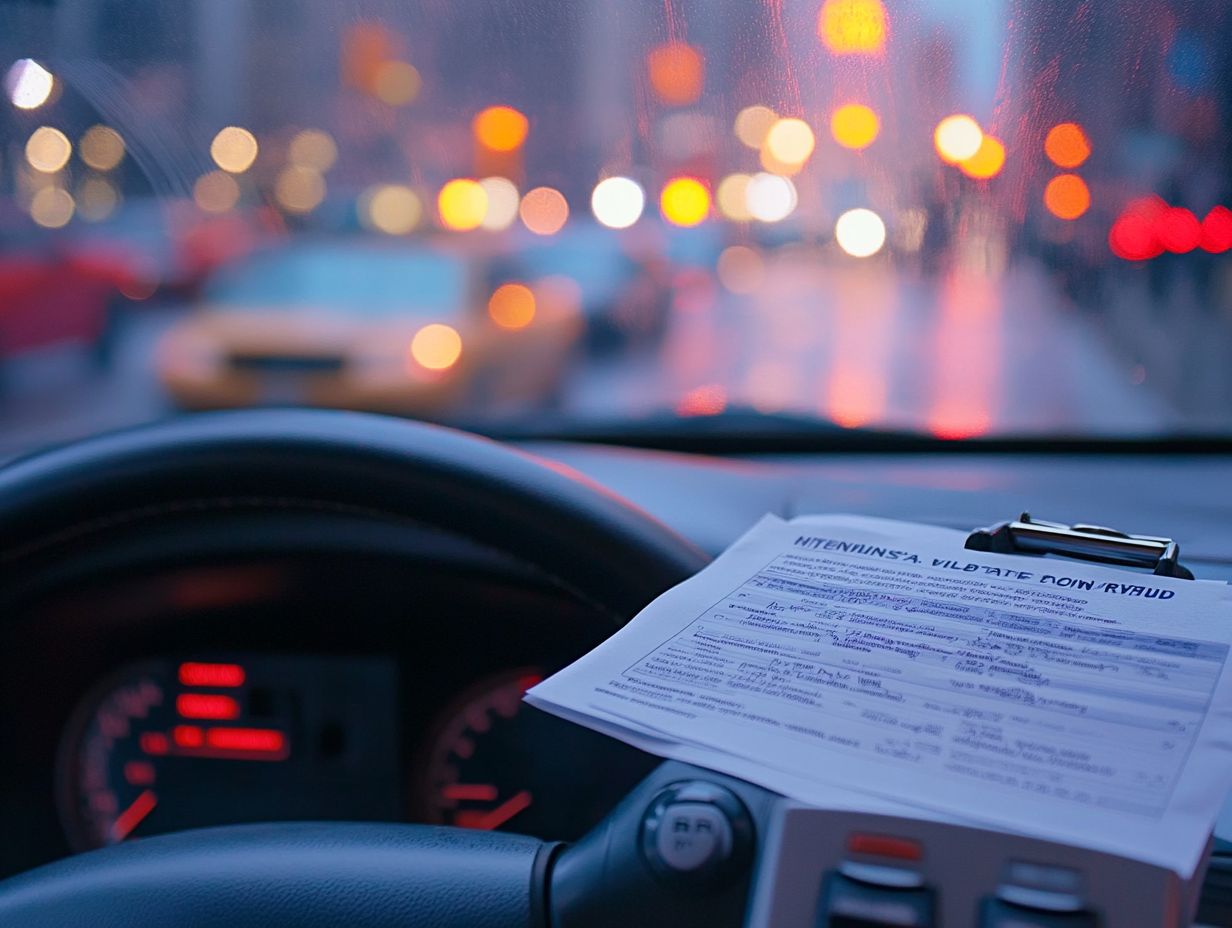
Getting into an accident with an uninsured motorist can have severe consequences. It can lead to significant liabilities and complicate your insurance claims.
When you find yourself in such a situation, obtaining fair compensation often becomes riddled with obstacles. Without adequate insurance coverage, your options for recovery may be limited, compelling you to consider legal action against the at-fault driver.
In Florida, Personal Injury Protection (PIP) is crucial. It helps cover your medical expenses and lost wages, regardless of who is at fault. Without this coverage, you could be left bearing the financial burden alone.
Uninsured motorists face serious penalties, including hefty fines and potential civil lawsuits, underscoring the legal ramifications of driving without proper insurance.
Coverage Options for Uninsured Vehicles
Understanding the different coverage options available for uninsured vehicles in Florida is vital for you as a driver. For instance, knowing what is coverage for specialized vehicles helps safeguard against the financial risks tied to accidents and injuries.
Options like personal injury protection (PIP) and underinsured motorist coverage are essential. They offer you financial support in the event of an accident with an uninsured motorist.
This way, you can manage medical bills, lost wages, and other expenses without shouldering the financial burden alone.
Types of Insurance Coverage
There are several types of insurance coverage to protect you against losses associated with uninsured motorists, including personal injury protection (PIP) and coverage for commercial vehicles.
Liability insurance also plays a crucial role by covering damages and medical expenses for others in accidents where you are at fault. Comprehensive coverage safeguards you against non-collision-related incidents such as theft or damage from weather events, allowing you to feel secure even when you re not directly involved in an accident.
Collision coverage specifically addresses repair costs from accidents, regardless of fault. It provides you with a safety net for unforeseen automotive mishaps. Together, these insurance types create a robust framework designed to offer you peace of mind as you navigate the roads responsibly.
State Requirements and Laws
Florida state laws require you to maintain a minimum level of insurance coverage, including personal injury protection (PIP). This ensures you are compensated for medical expenses and damages resulting from accidents, including those involving uninsured motorists.
This requirement is particularly vital in a state with high traffic volumes. It not only protects you but also contributes to overall road safety. The law mandates at least $10,000 in PIP coverage and a similar amount for property damage liability, ensuring you can cover essential costs should an accident occur.
Ignoring these insurance requirements can result in hefty fines and even losing your license! The Florida Statute regulates these practices, clearly outlining the responsibilities of both insurers and policyholders. This fosters an environment that upholds your rights in the event of a road incident.
How to Obtain Coverage for an Uninsured Vehicle
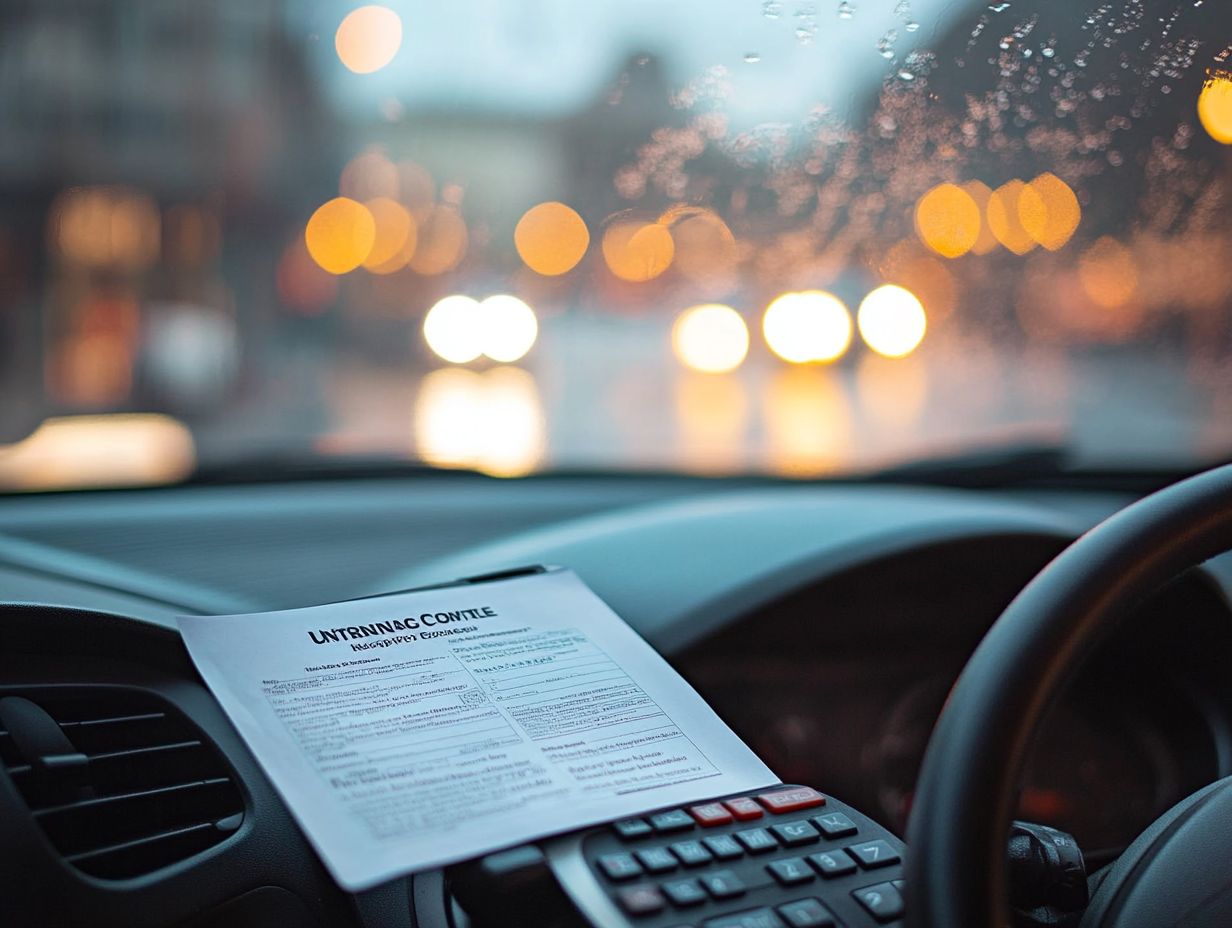
To secure coverage for utility vehicles, you must understand the steps to get the coverage you need. This should align with Florida’s legal requirements and safeguard against potential risks.
This process involves assessing your personal needs, exploring various insurance providers, and possibly consulting with a knowledgeable attorney to help you understand different insurance choices and claims processes.
Steps to Getting Insured
Getting insured for an uninsured vehicle involves several essential steps. Start by assessing your current coverage needs and comparing policy options, including understanding coverage for event vehicles, to find the best fit for your unique circumstances.
- First, take time to understand the various coverage options available, such as liability, collision, and comprehensive insurance.
- It s crucial to evaluate quotes from multiple insurers to secure a competitive rate.
- Don t overlook optional benefits like Personal Injury Protection (PIP). This can provide additional peace of mind and financial support in an accident.
Keep a checklist handy. It will help you make informed decisions about your needs and preferences. Remember, asking questions can clarify any uncertainties you may have with agents. This careful, methodical approach leads to comprehensive coverage that aligns perfectly with your budget and protection requirements.
Exciting Alternatives to Traditional Insurance!
If you’re exploring alternatives, several options effectively cover uninsured vehicles, including coverage for off-road vehicles, tailored to meet your specific needs.
Consider options such as:
- Setting aside money yourself instead of getting an insurance policy (self-insurance)
- Joining insurance pools
- Leveraging short-term insurance policies
Each alternative offers the flexibility you may require, ensuring you find the right fit for your situation.
Other Options for Coverage
In addition to traditional insurance policies, you have several other options that cater to your diverse needs and budget. These options ensure you re protected against the risks associated with uninsured motorists.
Exploring these alternatives is particularly beneficial. Short-term policies provide flexibility if you only need coverage for a limited time, such as when you re an occasional driver or using a vehicle temporarily. Similarly, usage-based insurance allows you to pay for coverage based on your actual driving habits, leading to significant savings if you’re a safe driver.
Don’t miss out! Join memberships or cooperatives to leverage collective purchasing power and secure lower premiums. However, consider the legal implications and policy details tied to each alternative, as these factors can greatly influence your overall liability and protection. This ensures you’re equipped with the right coverage tailored to your unique circumstances.
Frequently Asked Questions
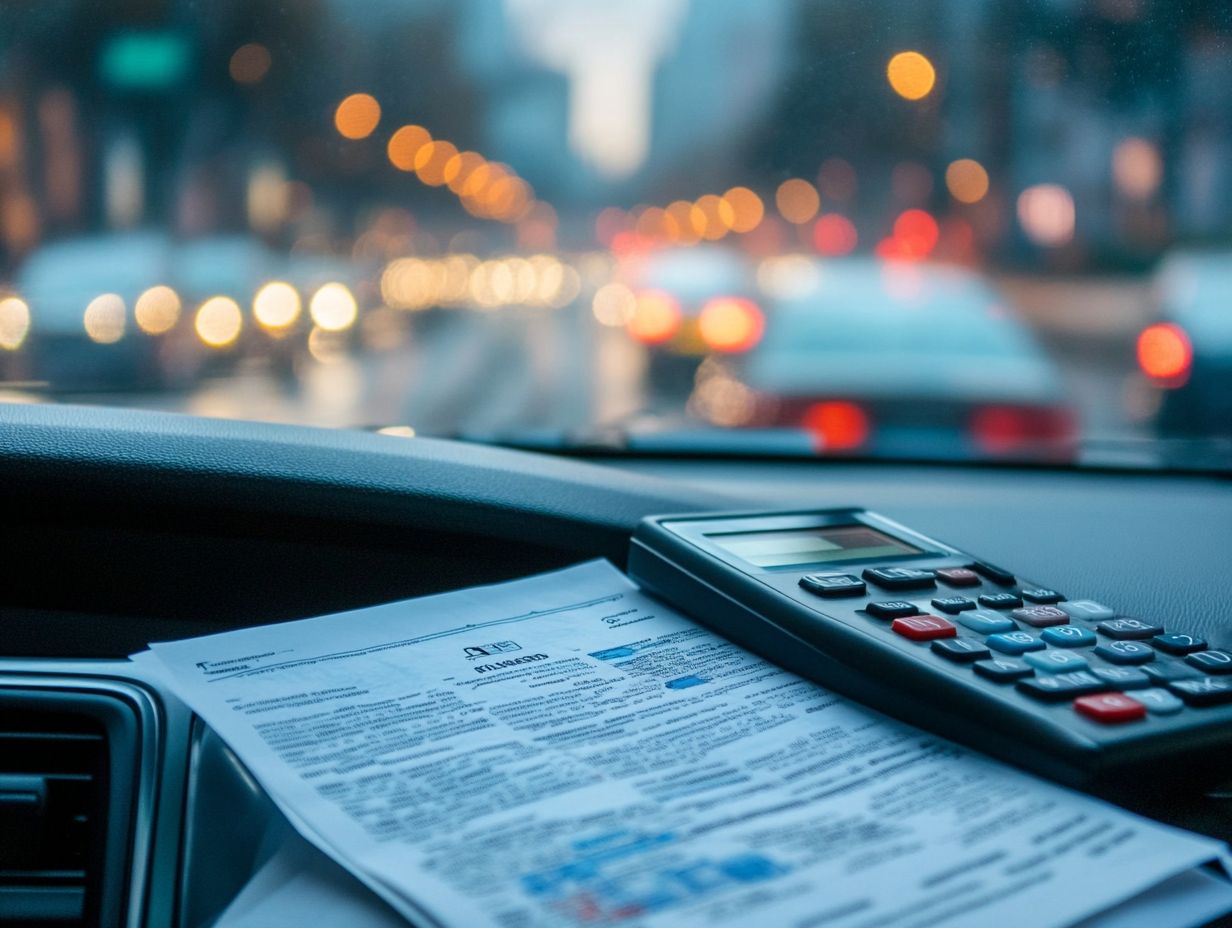
What is uninsured motorist coverage?
Uninsured motorist coverage protects you if you’re in an accident with a driver who does not have insurance. It helps cover medical expenses and vehicle damages if the uninsured driver is at fault, similar to how coverage for construction vehicles provides essential protection for specialized vehicles on the road.
Do I need uninsured motorist coverage?
While uninsured motorist coverage is not required by law, it is highly recommended. If you’re in an accident with an uninsured driver, you may face expensive medical bills and repairs. Understanding the role of coverage in accidents provides valuable financial protection.
Can uninsured motorist coverage also protect me in hit-and-run accidents?
Yes! Uninsured motorist coverage applies in hit-and-run accidents where the at-fault driver cannot be identified. It helps cover your medical expenses and vehicle damages in these situations.
Is uninsured motorist coverage the same as underinsured motorist coverage?
No, these are two different types of coverage. Uninsured motorist coverage applies when the at-fault driver has no insurance, while underinsured motorist coverage applies when their insurance is insufficient to cover your expenses.
How much uninsured motorist coverage should I have?
The amount of uninsured motorist coverage you need depends on your individual circumstances. It s recommended to have the same amount of coverage as your liability insurance, or even more for extra protection in case of an accident with an uninsured driver.
Find the right coverage today!
Can I use my uninsured motorist coverage for damages to my car if I am at fault?
No, you cannot use uninsured motorist coverage for your own damages if you’re at fault. This coverage is designed for accidents involving uninsured drivers who cause damage.
If you are at fault, your liability insurance will cover the repairs to your vehicle. Liability insurance pays for damages to others property or medical costs when you are responsible for the accident.

